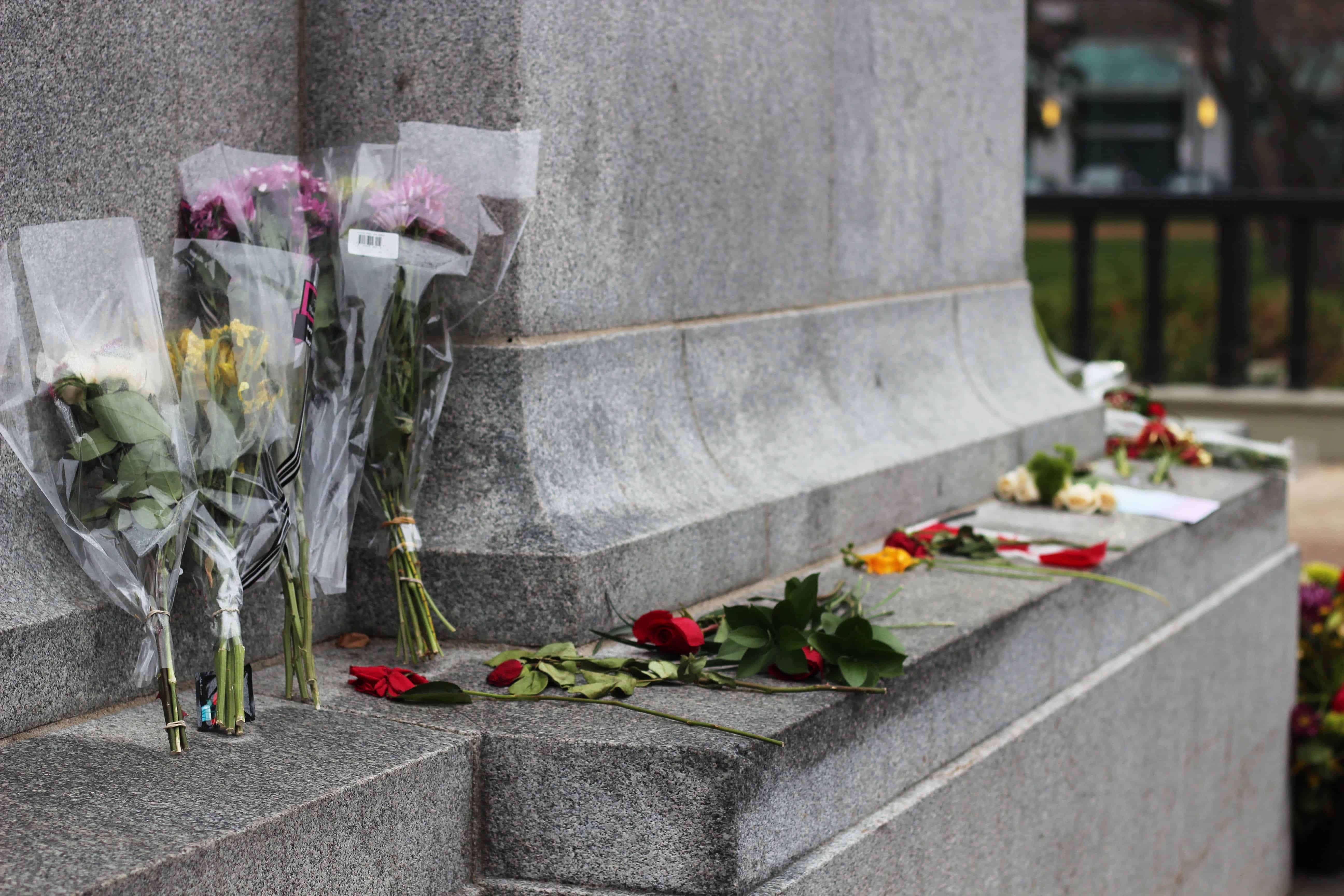Packaged politics

Geoff Leo, Tina Beaudry-Mellor, and Murray Mandryk discuss the role of journalists in politics
Chelsea Laskowski
Contributor
In addition to the free cookies and coffee provided, attendees at Sept. 28’s University of Regina-sponsored lecture, “Pack Packaged Politics: Are ‘made for TV’ campaigns ruining journalism and democracy?” received some food for thought from the CBC’s Geoff Leo, political science lecturer Tina Beaudry-Mellor, and the Leader Post’s Murray Mandryk.
Mitch Diamantopoulos, head of the U of R School of Journalism, posed five questions for the three panelists to respond to. In the loose debate format, Beaudry-Mellor represented the analytical-academic part of the panel, while Leo and Mandryk represented the practical side of journalism.
When asked about the role of journalism in a democratic society, Beaudry-Mellor, the only panelist who brought notes, responded, “The role of journalists in a democratic society is to help frame our democratic narrative.
“If you look at the rate of voter turnout and the relative disaffection that people have with politics, you would have to conclude that currently operating with journalism from an aggregative democratic perspective is actually counterproductive,” she added.
“Because of what you have to do on a daily basis, there isn’t a hell of a lot of time to think about some of the questions that are important. There just isnt’t time to do it,” Mandryk said. He explained that cuts made to political reporting are partially responsible for mainstream media’s failings.
“Most of the content does tend to come from paid, full-time journalists,” said Geoff Leo, defending the informative capacity of journalism. Leo referred to the popular ”sausage factory” method of churning out news, stating, “It’s not like what we need is more information … what we need is more clarity.”
Beaudry-Mellor recognized the complementary roles of the academic to journalists.
“We do a lot of the same work, but we do it shorter,” Leo conceded.
The panelists’ back-and-forth tended towards Beaudry-Mellor critiquing journalism, while Leo and Mandryk explained the reasons why.
Beaudry-Mellor sees the focus on popular politicians or scandals as a distraction. She expressed concerns with “how far away we’ve come from having substantive policy discussion in our day-to-day lives.”
Mandryk is no stranger to subjects which “a lot of people will find quite boring”. The difficulty of in-depth policy analysis, said Mandryk, is humorously engaging the reader without resorting to sensationalist stories.
“The reason we focus so much on the Prime Minister, the leader, etc., is the nature of the parliamentary system … they have an excessive amount of power that far exceeds what they have in the republican system in the U.S.,” Mandryk said.
“Do we want to tell people what we think they need to know, or do we want to be more populist and tell people what they want to hear? Part of the problem is that the question quickly turns into, ‘Do we want to have an audience, or do we want to kind of wallow in irrelevance?’” Leo said.
Leo cited an example where sensationalism overtook analytical reporting. In the 2003 provincial election campaign, the media widely covered a story on an NDP staff member’s scandalous comic drawing of Elwin Hermanson. In hindsight, Leo felt that Lorne Calvert’s hollow promise of a lower-utility bundle was more important, yet unanalyzed.
Leo criticized news-media for relying too much on “streeters”: regular people reporters ask for opinions on a variety of subjects,
“Do you want the guy who never thought of it, or someone who’s spent their life studying it?” Leo asked.
Beaudry-Millor, who is often interviewed by the media, expressed frustration over how the important points she makes regularly get cut from the news. Leo mentioned that TV news stories are about one minute 40 seconds long. Beaudry-Millor’s complex analysis of important subjects would be hard-pressed to fit into that space.
All panelists agreed with the importance of social media and the role it will play in future of journalism. Beadry-Mellor mentioned the potential for social media to “allow for public discourse”. Mandryk’s ideal public discourse would eliminate the anonymity allowed by blogs and online comment boards.
The most-emphasized point of the lecture was to add Beaudry-Mellor, Leo, and Mandryk to Twitter. No hashtag joke allowed.









